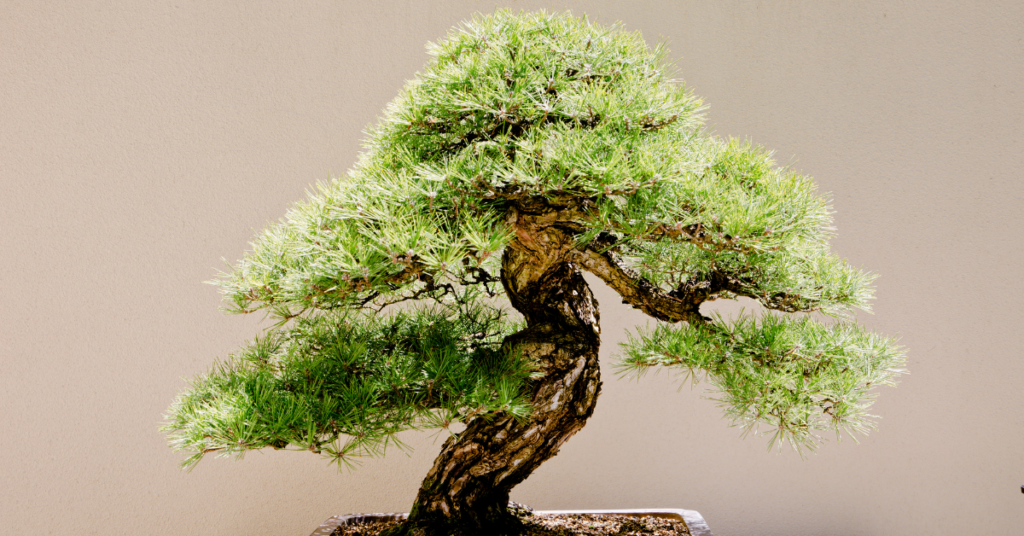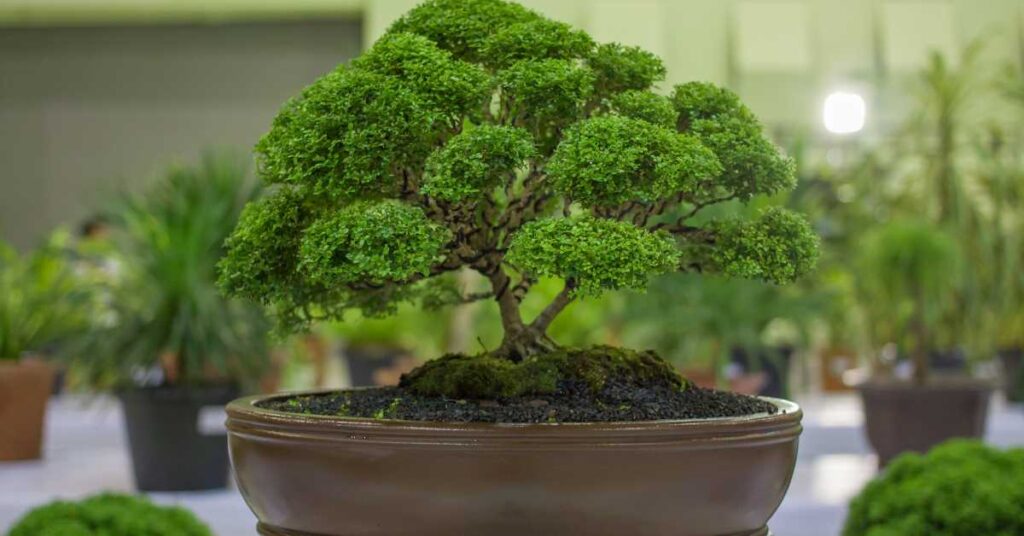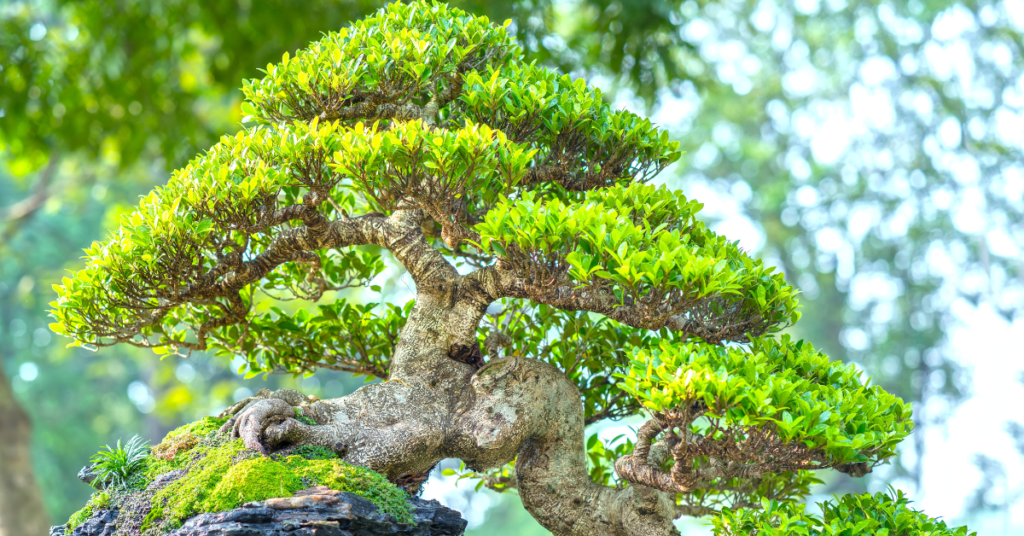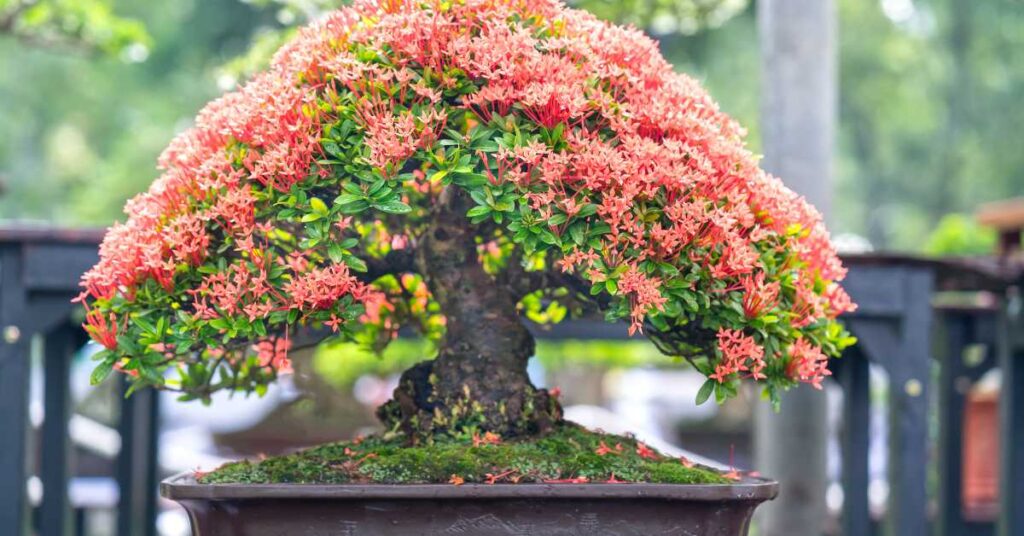Are bonsai trees good luck? Bonsai trees are often considered symbols of good luck, harmony, and balance due to their aesthetic appeal and the patience required to cultivate them. However, there is no definitive evidence to support the belief that they inherently bring good fortune. The perception of bonsai trees as good luck charms is primarily derived from cultural associations and personal beliefs, rather than any proven mystical properties.
What are bonsai trees?
Bonsai trees are essentially miniature versions of full-grown trees, cultivated in small containers and meticulously pruned to maintain their small size and unique shapes. The art of bonsai has been practiced for centuries, originating in China and later becoming popular in Japan. Bonsai is not only a form of art but also a representation of the harmony between nature and human beings.
The history and tradition of bonsai
The art of bonsai can be traced back to over a thousand years ago in ancient China. It was known as “penjing” or “penzai,” which translates to “tray scenery” or “tray plant.” The Chinese aristocrats would create miniature landscapes in trays, including trees, rocks, and sometimes even water. Bonsai was introduced to Japan around the 6th century and eventually became an essential part of Japanese culture.
Are Bonsai Trees Good Luck?
Bonsai trees, with their visually pleasing appearance and the careful attention needed for their growth, are frequently viewed as emblems of good luck, harmony, and equilibrium.
While there is no concrete proof that these miniature trees innately attract prosperity, their association with good fortune primarily stems from cultural traditions and individual convictions, rather than any established supernatural characteristics.

Why bonsai trees are associated with luck
Bonsai trees are associated with luck due to their rich symbolism and the belief that they attract positive energy. They are often considered a good luck charm or a token of prosperity, making them popular as gifts or decorative pieces.
The Symbolism of Bonsai Trees
What does the bonsai tree symbolize?
Bonsai trees have various symbolic meanings, such as:
- Harmony: Bonsai represents the balance between nature and human intervention.
- Patience: The art of bonsai requires time and dedication, symbolizing patience and perseverance.
- Simplicity: Bonsai trees showcase the beauty of nature in its simplest form.
- Longevity: Bonsai trees can live for hundreds of years, making them symbols of longevity and wisdom.
What tree symbolizes prosperity?
The Jade Tree or the Money Tree (Crassula ovata) is often associated with prosperity and good fortune. It’s believed that the Jade Tree’s round, coin-like leaves symbolize wealth and abundance.
How does the bonsai tree represent harmony and balance?
Bonsai trees are created through a combination of horticultural techniques and artistic expression. This process involves careful pruning, wiring, and repotting to create a harmonious, balanced design that mirrors the natural world. In this way, bonsai trees symbolize the union of human artistry and nature, achieving harmony and balance.
The Spiritual Connection of Bonsai Trees
What role does bonsai play in meditation and mindfulness?
Bonsai trees can play a significant role in meditation and mindfulness practices. The art of bonsai requires focus, patience, and dedication, making it a form of moving meditation. By working with a bonsai tree, you can develop a deeper connection with nature and cultivate a sense of peace and tranquility.
Can bonsai trees help improve mental wellbeing?
Yes, bonsai trees can help improve mental wellbeing. Tending to a bonsai tree can be a therapeutic and calming activity, providing a sense of accomplishment and relaxation. Additionally, the presence of a bonsai tree in your living space can create a serene atmosphere, promoting stress reduction and mental clarity.
Is bonsai good Feng Shui?
Bonsai is considered good Feng Shui for several reasons:
- Bonsai trees are living plants that bring positive energy (chi) into your space.
- The art of bonsai represents balance and harmony, which are essential principles of Feng Shui.
- Bonsai trees can be used as focal points to create a sense of order and serenity in your home or office.
However, it’s essential to choose the right type of bonsai tree and place it in the appropriate location to maximize its Feng Shui benefits.

Bonsai Trees and Good Fortune
Where do you put a bonsai for good luck?
To attract good luck and positive energy, place your bonsai tree in the following areas:
- Living room: Display your bonsai tree in a prominent position in your living room to bring positive energy and create a peaceful atmosphere.
- Office or workspace: Placing a bonsai tree in your office can help improve concentration, reduce stress, and invite success.
- Near the entrance: A bonsai tree near the entrance of your home can welcome positive energy and good fortune.
Make sure to avoid placing your bonsai tree in areas with low light or stagnant energy, such as bathrooms or dark corners.
What is the luckiest bonsai tree?
Some of the luckiest bonsai trees are:
- Jade Tree (Crassula ovata): Associated with wealth and prosperity.
- Ficus (Ficus spp.): Symbolizes unity, strength, and resilience.
- Pine (Pinus spp.): Represents longevity, wisdom, and good fortune.
How can bonsai trees attract positive energy?
Bonsai trees can attract positive energy by:
- Enhancing the flow of chi (life force) in your space.
- Promoting balance and harmony through their aesthetically pleasing appearance.
- Representing patience, perseverance, and growth, which are essential aspects of personal development.
The Practical Benefits of Bonsai Trees
Do bonsai trees clean the air?
Yes, bonsai trees, like other plants, can help clean the air by removing harmful pollutants, such as:
- Formaldehyde
- Benzene
- Trichloroethylene
Additionally, bonsai trees release oxygen and increase humidity levels, contributing to a healthier indoor environment.
Can bonsai trees improve indoor aesthetics?
Bonsai trees can significantly enhance your indoor aesthetics by adding a touch of natural beauty and elegance. They can serve as stunning focal points or blend seamlessly into your existing décor, depending on the style and placement of the tree.

What are the environmental benefits of bonsai cultivation?
Bonsai cultivation has several environmental benefits:
- Bonsai trees help reduce air pollution by absorbing harmful pollutants.
- The practice of bonsai encourages a deeper appreciation and understanding of nature, fostering environmental stewardship.
- Bonsai trees can help conserve resources, as they require less water and soil than full-sized trees.
Gifting Bonsai Trees
What does gifting a bonsai plant mean?
Gifting a bonsai plant symbolizes your wishes for the recipient’s happiness, prosperity, and good fortune. Bonsai trees are thoughtful and meaningful gifts that reflect the time and care invested in cultivating them.
How to choose the right bonsai tree as a gift
Consider the following factors when choosing a bonsai tree as a gift:
- The recipient’s experience level: Beginners might appreciate easy-to-care-for species, such as Ficus or Jade Tree.
- Symbolism: Choose a bonsai tree with symbolism that resonates with the occasion or the recipient’s personal values.
- Aesthetic preferences: Consider the recipient’s taste and style when selecting a bonsai tree.
Tips for wrapping and presenting a bonsai tree gift
- Use a decorative pot or tray to enhance the bonsai’s appearance.
- Wrap the pot or tray with a beautiful cloth or gift wrap, leaving the tree itself visible.
- Include a care guide and information about the tree’s symbolism to provide the recipient with the knowledge to maintain their new bonsai.
Bonsai Trees at Home
Is it good to keep a bonsai tree at home?
Yes, it’s good to keep a bonsai tree at home for various reasons:
- Bonsai trees can improve your indoor air quality.
- They add natural beauty and elegance to your living space.
- Bonsai trees serve as a symbol of harmony, balance, and good fortune.
- Tending to a bonsai tree can be a relaxing and meditative activity that promotes mental wellbeing.
Where should I place my bonsai tree at home?
To ensure the health and longevity of your bonsai tree, consider the following when choosing its placement:
- Light: Bonsai trees need adequate sunlight to thrive. Place your tree near a window with plenty of natural light.
- Temperature: Avoid placing your bonsai tree near heating or cooling vents, as extreme temperature fluctuations can harm the tree.
- Humidity: Some bonsai trees require higher humidity levels, so placing them near a humidifier or in a room with higher humidity, such as a kitchen, can be beneficial.
How to care for a bonsai tree to ensure its health and longevity
Proper care is essential for maintaining the health and beauty of your bonsai tree. Here are some basic care tips:
- Watering: Bonsai trees require consistent and thorough watering. Check the soil moisture regularly and water when the top inch of the soil feels dry.
- Pruning: Regular pruning is necessary to maintain the desired shape and size of your bonsai tree. Use clean, sharp scissors or shears to remove unwanted growth.
- Repotting: Repot your bonsai tree every 1-5 years, depending on the species and age of the tree. Choose a suitable container and use a well-draining soil mix.
- Fertilizing: Apply a balanced, slow-release fertilizer to provide your bonsai tree with essential nutrients.
FAQs
Here are some common questions about bonsai trees and luck:
Is it good to keep a bonsai tree at home?
Yes, keeping a bonsai tree at home can improve your indoor air quality, add beauty to your living space, and promote mental well-being. Bonsai trees absorb toxins and release fresh oxygen into your home, creating a healthier environment for you and your family. Additionally, the beauty of bonsai plants can lift your mood and provide soothing stress relief when cared for properly. Finally, caring for a bonsai tree encourages patience and mindfulness – practices that lead to greater happiness in life.
What is the luckiest bonsai tree?
Some of the luckiest bonsai trees include the Jade Tree, Ficus, and Pine. Jade Trees, in particular, are known for their hardy nature and ability to thrive with very little water or soil. Ficus trees are some of the most popular bonsai trees due to their versatility and ease of growth. Pine trees also make wonderful bonsai specimens when properly cared for. They can be pruned into interesting shapes and thrive in many different climates. With patience and care, these trees can be shaped into beautiful bonsai specimens that will last for years.
Where should I place my bonsai tree at home?
Place your bonsai tree in a location with adequate sunlight, stable temperature, and appropriate humidity levels. Monitor the soil moisture with your finger or a moisture meter, and water it when necessary. Make sure to fertilize every few weeks with a fertilizer specifically made for bonsai trees.
Prune your bonsai tree regularly, removing long shoots and branches that don’t conform to its artistic shape. Wiring techniques are used to help shape your bonsai tree as desired. If needed, you can use certain pest control measures to keep your bonsai healthy.
Finally, re-potting should be done every few years so that the soil remains fresh and provides adequate nutrients for your bonsai tree.
What does the bonsai tree symbolize?
Bonsai trees symbolize harmony, patience, simplicity, and longevity. When you take the time to care for and nurture your bonsai, it can become a source of serenity, relaxation, and peace in your life. The best part is that caring for a bonsai tree doesn’t have to be difficult or expensive. All you need are some basic tools and supplies, a little bit of knowledge, and lots of patience.
Where do you put a bonsai for good luck?
Display your bonsai tree in your living room, office, or near the entrance of your home to attract good luck and positive energy. You can also display your bonsai tree outdoors in the garden or on a balcony, deck, or patio to be surrounded by the beauty of nature. When selecting a location for your bonsai tree, consider factors such as exposure to sunlight, air circulation, and humidity levels that best suit your tree’s needs.
What does gifting a bonsai plant mean?
Gifting a bonsai plant symbolizes your wishes for the recipient’s happiness, prosperity, and good fortune. It is a gesture of appreciation and respect and can bring peace, joy, and harmony to any relationship. Bonsai plants are the perfect gift for any occasion – birthdays, anniversaries, graduations, weddings, or just to show someone you care.
Is bonsai good Feng Shui?
Yes, bonsai is considered good Feng Shui as it promotes balance, harmony, and positive energy. It is believed that bonsai can help to create a positive atmosphere, allowing negative energy to dissipate and clear your home or office space. Bonsai also helps to reduce stress levels, as it promotes relaxation and tranquility in the environment. Bonsai trees are known for their ornamental beauty and therapeutic effects, making them perfect for any home or office.
Do bonsai trees clean the air?
Yes, bonsai trees can help clean the air by removing harmful pollutants and releasing oxygen. Bonsai trees absorb carbon dioxide, releasing oxygen into the air while also filtering out pollutants like dust, mold, and other harmful chemicals.
What tree symbolizes prosperity?
The Jade Tree or Money Tree symbolizes prosperity and good fortune. It’s a great choice to bring positive energy into any home or office. I’m really looking forward to seeing the results of taking care of mine!
Final Thoughts
Bonsai trees hold great cultural and spiritual significance, serving as symbols of good luck and prosperity. By integrating bonsai into your daily life, you can enjoy the many benefits these miniature masterpieces provide, such as improved air quality, enhanced aesthetics, and a more balanced and harmonious living space. Embrace the art of bonsai to cultivate a deeper appreciation for nature and create a serene environment in which to thrive.


